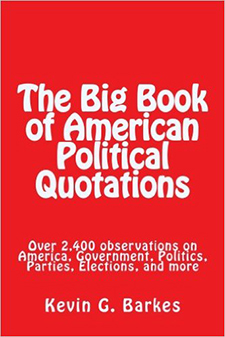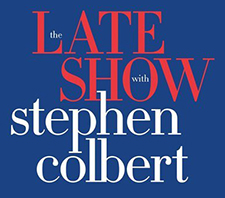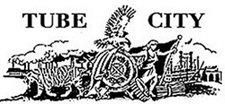
Lewis H. Lapham (b. January 8, 1935) is an American writer. He was the editor of the American monthly Harper's Magazine from 1976 until 1981, and from 1983 until 2006. He is the founder of Lapham's Quarterly, a quarterly publication about history and literature, and has written numerous books on politics and current affairs. (Clic here for full Wikipedia article)
-----
A certain kind of rich man afflicted with the symptoms of moral dandyism sooner or later comes to the conclusion that it isn't enough merely to make money. He feels obliged to hold views, to espouse causes and elect Presidents, to explain to a trembling world how and why the world went wrong. The spectacle is nearly always comic.
A society that presumes a norm of violence and celebrates aggression, whether in the subway, on the football field, or in the conduct of its business, cannot help making celebrities of the people who would destroy it.
As many as six out of ten American adults have never read a book of any kind, and the bulletins from the nation’s educational frontiers read like the casualty reports from a lost war.
At this late stage in the history of American capitalism I'm not sure I know how much testimony still needs to be presented to establish the relation between profit and theft.
By the word 'liberty' they meant liberty for property, not liberty for persons.
Construed as a means instead of an end, history is the weapon with which we defend the future against the past.
Except in a few well-publicized instances (enough to lend credence to the iconography painted on the walls of the media), the rigorous practice of rugged individualism usually leads to poverty, ostracism and disgrace. The rugged individualist is too often mistaken for the misfit, the maverick, the spoilsport, the sore thumb.
I never can pass by the Metropolitan Museum of Art in New York without thinking of it not as a gallery of living portraits but as a cemetery of tax-deductible wealth.
I sometimes think that the American story is the one about the reading of the will.
If a foreign country doesn't look like a middle-class suburb of Dallas or Detroit, then obviously the natives must be dangerous as well as badly dressed.
If we could let go of our faith in money, who knows what we might put in its place?
In the garden of tabloid delight, there is always a clean towel and another song.
It isn't money itself that causes the trouble, but the use of money as votive offering and pagan ornament.
Leadership consists not in degrees of technique but in traits of character; it requires moral rather than athletic or intellectual effort, and it imposes on both leader and follower alike the burdens of self-restraint.
Let the rabbit of free enterprise out of its velveteen bag and too many people would have to be fired, too much idiocy exposed to the light of judgment or ridicule, too much vanity sacrificed to the fires of efficiency. Such a catastrophe obviously would threaten the American way of life, to say nothing of the belief in free markets.
Most of the ladies and gentlemen who mourn the passing of the nation's leaders wouldn't know a leader if they saw one. If they had the bad luck to come across a leader, they would find out that he might demand something from them, and this impertinence would put an abrupt and indignant end to their wish for his return.
Never in the history of the world have so many people been so rich; never in the history off the world have so many of those same people felt themselves so poor.
Of what does politics consist except the making of imperfect decisions, many of them unjust and quite a few of them deadly?
Once having proclaimed our loyalty to the abstract idea that all men are created equal, we do everything in our power to prove ourselves unequal. Among the world's peoples, none other belongs to so many clubs, associations, committees and secret societies.
People may expect too much of journalism. Not only do they expect it to be entertaining, they expect it to be true.
Power broken into a thousand pieces can be hidden and disowned. If no individual or institution possesses the authority to act without of everybody else in the room, then nobody is at fault if anything goes wrong.
Seeking the invisible through the imagery of the visible, the Americans never can get quite all the way to the end of the American dream.
Since the eighteenth century the immense expansion of the world's wealth has come about as a result of a correspondingly immense expansion of credit, which in turn has demanded increasingly stupendous suspensions of disbelief.
Surely they knew that the very idea of the future came in an American box- complete with instructions for assembling a Constitution, a MacDonald's hamburger franchise, a row of Marriot hotels and a First Amendment.
The genius of capitalism consists precisely in its lack of morality. Unless he is rich enough to hire his own choir, a capitalist is a fellow who, by definition, can ill afford to believe in anything other than the doctrine of the bottom line. Deprive a capitalist of his God-given right to lie and cheat and steal, and the poor sap stands a better than even chance of becoming one of the abominable wards of the state from whose grimy fingers the Reagan Administration hopes to snatch the ark of democracy.
The gentlemen who wrote the Constitution were as suspicious of efficient government as they were wary of democracy, a 'turbulence and a folly' that was associated with the unruly ignorance of an urban mob.
The playing field is more sacred than the stock exchange, more blessed than Capital Hill or the vaults of Fort Knox. The diamond and the gridiron - and, to a lesser degree, the court, the rink, the track, and the ring - embody the American dream of Eden.
The rich, like well brought up children, are meant to be seen, not heard.
The state of perpetual emptiness is, of course, very good for business.
The supply of government exceeds demand.
The world goes on as before, and it turns out that nobody else seems to to notice the unbearable lightness of being.
Under the rules of a society that cannot distinguish between profit and profiteering, between money defined as necessity and money defined as luxury, murder is occasionally obligatory and always permissible.
Unlike any other business in the United States, sports must preserve an illusion of perfect innocence.
Unlike every other other nation in the world, the United States defines itself as a hypothesis and constitutes itself as an argument.
Wars might come and go, but the seven o'clock news lives forever.
We are a people captivated by the power and romance of metaphor, forever seeking the invisible through the image of the visible.
We need not seek our own best selves, and in the meantime we inoculate ourselves against the viruses of age and idealism, which, as the advertising agencies well know, depress sales and sour the feasts of consumption
Well aware of both the continuity and contingency of human affairs, Adams and Madison searched the works of Tacitus and Voltaire and Locke like carpenters rummaging through their assortment of tools, knowing that all the pediments were jury-rigged, all the provisional, all the alliances temporary.
-----
(January 8 is also the birthday of Baltasar Gracián and Elvis Presley.)
Categories: Lewis H. Lapham, Quotes of the day
KGB Stuff Commentwear E-Mail KGB
Donate via PayPal

















